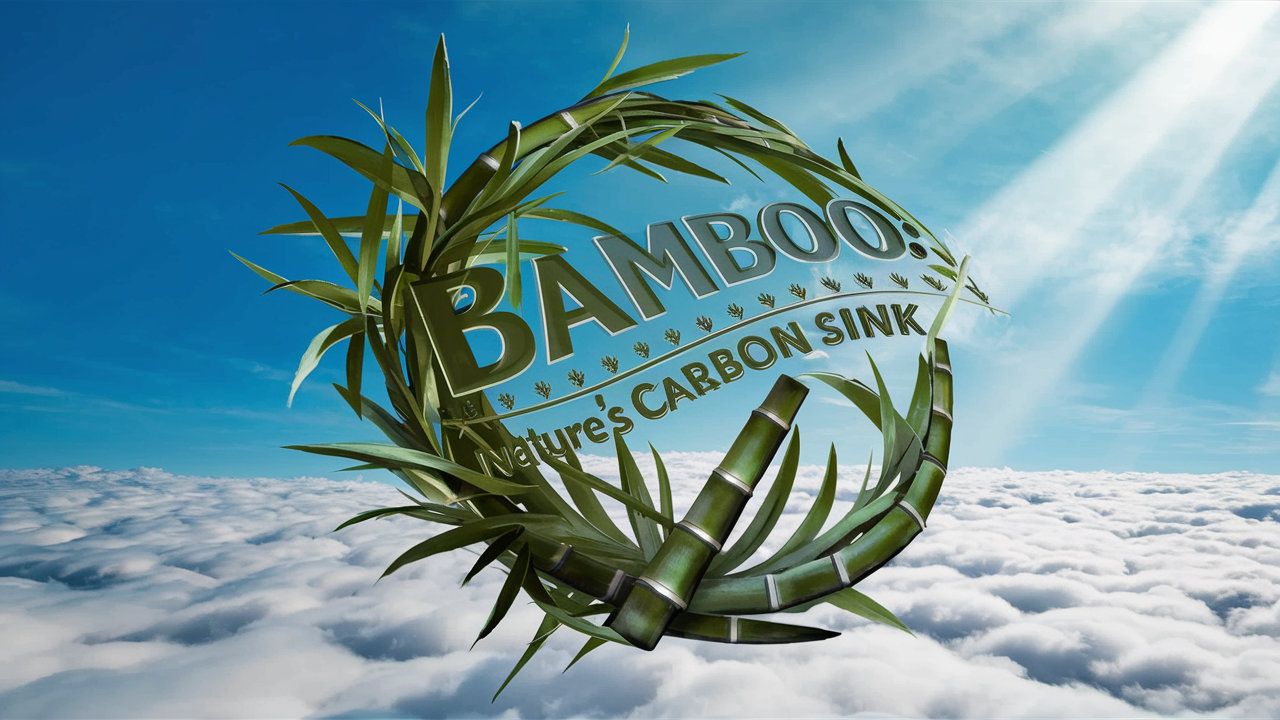The Bamboo Effect:
How One Plant Can Change the World for the Better
Bamboo: The Ultimate Eco-Friendly Material for a Greener Tomorrow
Bamboo, a seemingly ordinary plant, holds the potential to revolutionize various industries and provide sustainable solutions to global challenges. This remarkable plant boasts a multitude of benefits, ranging from its superior strength to its environmental advantages, making it an ideal material for a greener future. In this article, we will delve into the ecological advantages of bamboo, its versatile uses, and its potential in addressing global challenges such as climate change and sustainable development.
Superior Strength and Durability
Bamboo possesses incredible tensile strength, surpassing even that of steel. Its natural durability ensures long-lasting performance, making it an ideal material for various applications. Bamboo's remarkable strength can be attributed to its unique cellular structure, which allows it to bend and flex without breaking, much like a giant spring. This property makes it an excellent choice for construction and infrastructure projects, as well as for manufacturing a variety of products such as furniture, textiles, and even paper.

Environmental Benefits
Bamboo is an eco-friendly material that offers numerous environmental benefits. It is a carbon-neutral crop, meaning it absorbs the same amount of carbon dioxide during growth as it releases during processing. Additionally, bamboo plays a vital role in carbon sequestration, helping to mitigate climate change and reduce greenhouse gas emissions. Compared to other crops, bamboo requires minimal water and land resources, making it an efficient choice for resource-conscious industries.
Versatile Uses
Bamboo's versatility extends far beyond its use as a construction material or eco-friendly product. Its numerous applications include:
- Soil Conservation and Erosion Prevention: Bamboo's extensive root structure plays a crucial role in soil conservation and erosion prevention. The strong roots anchor the soil, preventing erosion and promoting stability.
- Carbon Sequestration: Bamboo absorbs carbon dioxide from the atmosphere, contributing to carbon sequestration and mitigating the effects of climate change.
- Sustainable Development: Bamboo's numerous benefits make it an ideal material for sustainable development. Its minimal water requirement and efficient resource usage make it an eco-friendly choice for various industries.
- Eco-Friendly Products: Bamboo can be used to produce a wide range of eco-friendly products, including textiles, paper, furniture, and even building materials such as flooring and roofing.

Reducing Carbon Footprints
Bamboo's contributions to sustainable development and reduction of carbon footprints are undeniable. By utilizing bamboo in various industries, we can significantly reduce our reliance on non-renewable resources and mitigate the effects of climate change. Moreover, bamboo's efficient resource usage and minimal water requirement make it an eco-friendly choice for resource-conscious industries.
Bamboo's Minimal Water Requirement: Efficient and Sustainable Resource Usage
One of the most significant advantages of bamboo is its minimal water requirement, making it an efficient choice for resource-conscious industries. Bamboo requires only 50% less water compared to other crops, which is a remarkable reduction in water consumption. This efficiency in resource usage makes bamboo an ideal crop for sustainable development and eco-friendly practices.
Conclusion
Bamboo is a natural solution for soil conservation and erosion prevention, offering numerous benefits such as superior strength, environmental advantages, and versatile uses. Its minimal water requirement and efficient resource usage make it an eco-friendly choice for various industries. By utilizing bamboo in sustainable practices, we can significantly reduce our carbon footprints and contribute to a greener tomorrow. The remarkable properties of bamboo have the potential to revolutionize various industries and provide sustainable solutions to global challenges, making it an ultimate eco-friendly material for a greener future.

Unveiling Bamboo's Superior Properties
Delve into the scientific comparisons that demonstrate bamboo's superiority to steel in terms of tensile strength and its significant role in carbon sequestration.

Discover the Environmental Benefits of Bamboo
Learn about bamboo's sustainable use as a building material and in textile production, and its ability to thrive in diverse climates.

Bcompact - Committed to Bamboo
Discover the elegance of sustainability with Bcompact's bamboo innovations, where cutting-edge design meets environmental stewardship.
A short video series.